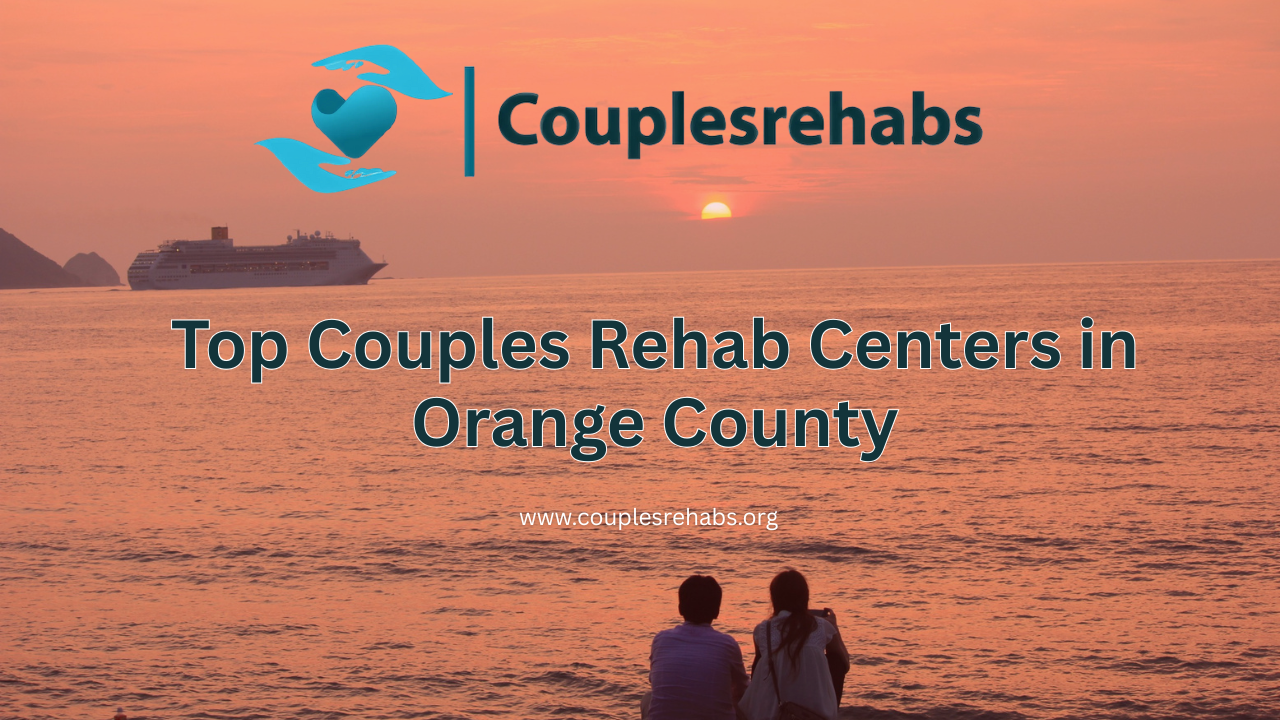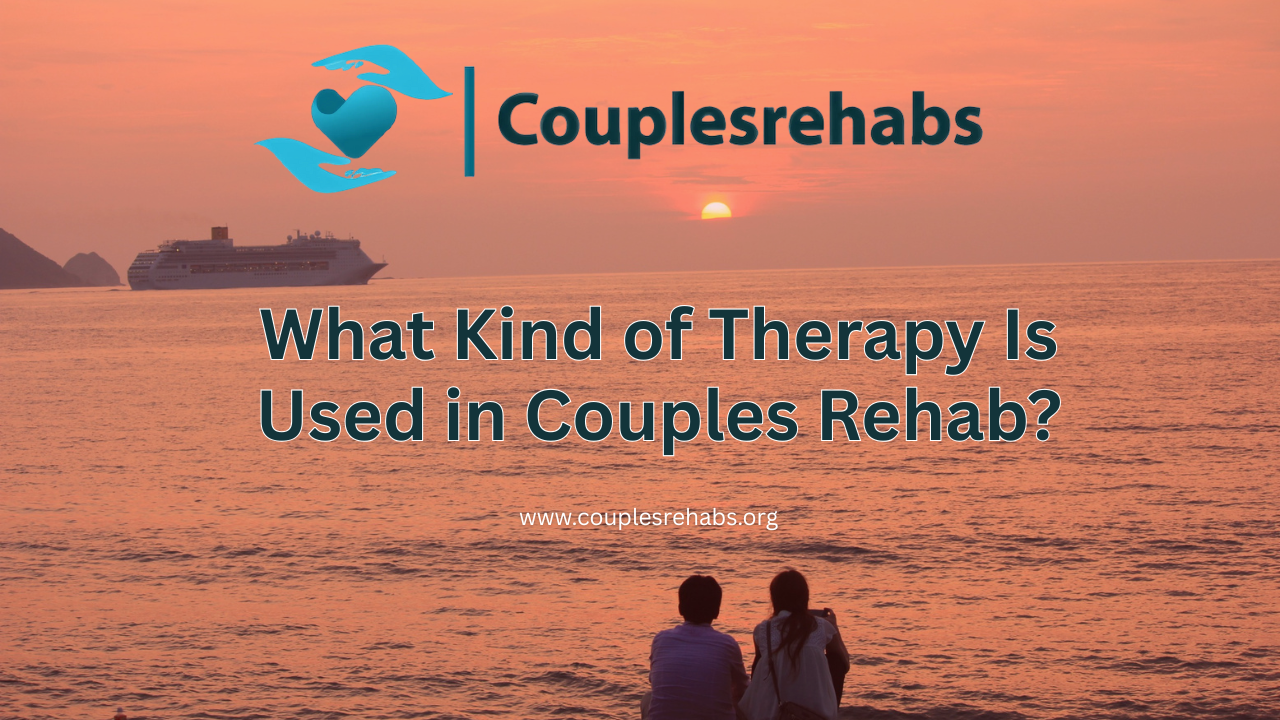Top Couples Rehab Centers in Orange County
When addiction affects both partners in a relationship, the path to recovery becomes more complex yet deeply intertwined. Orange County has emerged as a premier destination for couples seeking addiction treatment together, offering world-class facilities that understand the unique dynamics of relationship-focused recovery. With its serene coastal setting, year-round perfect weather, and concentration of specialized treatment centers, Orange County provides an ideal environment for couples to heal both individually and as a unit.
The decision to enter couples addiction treatment Orange County represents more than just choosing a geographic location—it’s about finding a place where both partners can receive comprehensive care while working to rebuild trust, communication, and intimacy. Unlike traditional individual treatment programs, Orange County couples rehab centers recognize that addiction doesn’t just impact the individual; it creates ripple effects throughout the entire relationship system that require specialized intervention.
For couples considering treatment options, understanding what makes certain couples drug rehab Orange County programs stand out can make the difference between lasting recovery and relapse. This comprehensive guide will explore the top treatment centers, what to look for in quality programs, and how to choose the right fit for your unique situation. Whether you’re exploring choosing the right rehab program for your relationship or ready to take the next step, Orange County offers unparalleled options for couples ready to reclaim their lives together.
Why Choose Orange County for Couples Addiction Treatment?
Orange County’s therapeutic landscape offers distinct advantages that set it apart as a premier destination for couples seeking recovery. The region’s natural beauty provides more than just scenic backdrops—studies show that exposure to coastal environments and natural settings can significantly reduce stress hormones and improve mood, creating optimal conditions for healing and emotional processing.
Geographic and Environmental Benefits
The county’s diverse geography allows treatment centers to offer various therapeutic environments, from beachfront facilities that promote relaxation to mountain locations providing adventure-based therapy options. This variety enables couples therapy rehab Orange County programs to incorporate outdoor healing modalities that wouldn’t be possible in other regions.
The proximity to the Pacific Ocean offers unique therapeutic opportunities. Many centers integrate beach walks, surfing therapy, and ocean meditation into their protocols. These activities provide couples with shared experiences that promote bonding while developing healthy coping mechanisms. The consistent year-round climate allows for outdoor therapeutic activities throughout all seasons.
Concentration of Expertise
Orange County has developed a robust ecosystem of addiction treatment professionals, many specializing in couples therapy and relationship dynamics. This concentration means best couples rehab centers in Orange County California can staff programs with therapists holding dual specializations in both addiction counseling and marriage therapy—essential for effective couples treatment.
The region’s treatment centers maintain strong connections with local recovery communities, providing couples with ongoing support networks that extend beyond initial treatment. Alumni programs, community meetings, and partnerships with local providers create comprehensive support systems crucial for long-term success.
Leading Couples Rehab Centers in Orange County
Couples Rehabs
As one of the leading couples addiction treatment Orange County providers, Couples Rehabs has gained national recognition for excellence in relationship-focused recovery. Their comprehensive approach to treating couples together has established them as a premier destination for partners seeking recovery, offering specialized programs that address both individual addiction and relationship healing simultaneously.
Award-Winning Features:
- Nationally recognized couples treatment expertise
- Low client-to-staff ratios ensuring personalized attention
- Evidence-based therapeutic approaches proven effective for couples
- Comprehensive assessment and individualized treatment planning
Specialized Programs:
- Couples residential treatment with structured daily programming
- Intensive outpatient options for working couples
- Dual diagnosis treatment for co-occurring mental health disorders
- Relationship counseling integrated with addiction treatment
What sets Couples Rehabs apart as a leading facility is their specialized focus on the unique dynamics of couples in recovery. Their experienced team understands that addiction affects not just individuals but entire relationship systems, providing targeted interventions that help couples heal together while building stronger foundations for long-term sobriety.
Coastal Haven Recovery Center
Specializing in luxury couples rehab Orange County experiences, Coastal Haven offers an intimate setting with evidence-based treatment combined with resort-style amenities. Their oceanfront facility is ideal for professionals requiring privacy and premium care.
Treatment Approach:
- Behavioral Couples Therapy (BCT) with certified specialists
- Emotionally Focused Therapy (EFT) for relationship repair
- Trauma-informed care addressing individual and shared trauma
- Executive programs with flexible scheduling
Key Features:
- Private oceanfront suites with Pacific views
- Gourmet organic meal preparation
- Full-service spa with couples treatments
- 24/7 medical supervision with on-site physicians
Their approach focuses on treating addiction as a shared challenge while providing individualized care. The center’s low client-to-staff ratio ensures personalized attention. Success rates indicate 78% of couples completing their program remain sober and together at one year.
Orange County Relationship Recovery Institute
This couples addiction treatment centers near me Orange County option offers both inpatient and intensive outpatient programs with sliding-scale fees, making them one of the more accessible affordable couples rehab treatment Orange County California options.
Key Strengths:
- Cognitive Behavioral Conjoint Therapy with relationship focus
- LGBTQ+ affirming treatment approaches
- Flexible scheduling accommodating work commitments
- Comprehensive insurance advocacy support
Program Features:
- Weekend intensive programs for busy professionals
- On-site childcare services during treatment
- Sliding scale fees based on income
- Transportation assistance when needed
Their innovative weekend programs accommodate couples who cannot take extended time away from responsibilities, providing 20 hours of therapy over two days while maintaining daily obligations.
Serenity Springs Couples Treatment Center
Located in Orange County’s hills, Serenity Springs offers a holistic approach to Orange County couples drug and alcohol rehab centers treatment, integrating traditional therapy with alternative healing modalities.
Unique Features:
- Adventure-based couples therapy including hiking
- Equine-assisted relationship counseling
- Art and music therapy integration
- Organic nutrition programs with cooking classes
Holistic Amenities:
- Private hiking trails with meditation stations
- Professional equine therapy program
- Organic farm-to-table dining with nutrition education
- Creative arts studios for various therapeutic activities
Their approach appeals to couples seeking alternatives to traditional talk therapy, helping partners reconnect through outdoor activities and creative therapies that feel natural rather than clinical.
Pacific Wellness Couples Recovery
This center stands out among couples addiction treatment Orange County facilities for integrating Eastern and Western healing approaches, offering both luxury and standard care options.
Specialized Services:
- Integrative couples therapy combining multiple modalities
- Meditation and mindfulness training with certified instructors
- Cultural competency programs for diverse couples
- Alumni mentorship connecting graduates with current clients
Their success stems from treating addiction as both medical and spiritual crisis, addressing physical, emotional, and spiritual aspects simultaneously. The multicultural approach makes it effective for couples from diverse backgrounds.

Luxury vs. Affordable Treatment Options
Luxury couples rehab Orange County facilities offer premium amenities and personalized care that enhance treatment outcomes. These programs provide private suites, gourmet dining, spa services, and enhanced privacy measures including exclusive treatment areas.
The lower client-to-staff ratios enable more individualized attention, with couples receiving extended therapy sessions, customized activities, and flexible scheduling. Some luxury centers offer unique therapies such as yacht sessions and adventure programs designed to build trust and communication.
However, excellent care doesn’t require luxury pricing. Affordable couples rehab treatment Orange County California options provide quality treatment through community partnerships and sliding-scale fees. Many couples don’t realize their insurance may cover significant portions of treatment costs. The best affordable programs employ insurance advocates who maximize coverage and minimize out-of-pocket expenses.
Inpatient vs. Outpatient Programs
The choice between inpatient couples rehab programs Orange County CA and outpatient alternatives depends on addiction severity, previous treatment attempts, and life obligations.
Inpatient Benefits
Residential treatment provides complete immersion in recovery without external distractions. Couples receive 24/7 medical supervision and structured programming, ideal for severe addictions or situations where the home environment contains significant triggers. The shared residential experience often strengthens couples’ bonds and commitment to sobriety.
Inpatient programs allow couples to focus entirely on recovery and relationship healing without work, family, or daily life stressors. The structured environment eliminates substance access while providing constant support during challenging early recovery stages when cravings and emotional volatility are highest.
Outpatient Advantages
Intensive outpatient programs allow couples to maintain work and family responsibilities while receiving comprehensive treatment. These programs typically involve 9-20 hours of therapy weekly, scheduled around existing commitments.
This approach works well for couples with strong support systems, stable employment they cannot leave, or parenting responsibilities. The ability to practice new skills in real-world settings while receiving professional support can enhance therapeutic gains transfer to daily life.
Many couples begin with inpatient treatment and transition to outpatient care, providing continuity while gradually increasing independence.
What to Look for in Quality Programs
Selecting effective Orange County couples drug and alcohol rehab centers requires evaluating multiple factors beyond location and cost.
Evidence-Based Approaches
Quality programs integrate proven therapies like Behavioral Couples Therapy (BCT), which shows significantly lower relapse rates compared to individual treatment. Look for combinations of BCT with Emotionally Focused Therapy (EFT) and Cognitive Behavioral Therapy (CBT).
Effective programs also incorporate trauma-informed care, recognizing that many individuals with addiction have trauma histories that may impact both substance use and relationship formation.
Staff Qualifications
The most effective programs employ licensed addiction counselors with specialized couples and family therapy training. This dual expertise is crucial for understanding both addiction medicine and relationship dynamics.
Ask about staff-to-client ratios, ongoing education requirements, and medical professional availability for complex cases. Quality programs maintain low ratios ensuring personalized attention and have qualified staff available for crisis intervention 24/7.
Comprehensive Assessment
Effective programs begin with thorough evaluations of both partners individually and as couples, examining addiction severity, mental health concerns, relationship dynamics, and trauma histories using standardized assessment tools.
Following assessment, quality programs develop individualized treatment plans addressing both partners’ unique needs while incorporating joint relationship healing goals.
Aftercare Support
Recovery continues beyond formal treatment. Strong programs provide comprehensive aftercare including continued therapy options, support groups, and alumni programs maintaining long-term graduate engagement.
Look for centers offering graduated support levels, starting with intensive programming and transitioning to weekly therapy and peer support as couples build recovery confidence.
Insurance and Financial Considerations
Understanding couples therapy rehab Orange County financial aspects helps couples make informed decisions. Treatment costs vary based on program type, length, and amenities, ranging from $15,000-$30,000 monthly for standard programs to $50,000-$100,000 for luxury options.
Most insurance plans provide addiction treatment coverage under the Mental Health Parity Act, though couples-specific programming benefits vary. Many centers employ insurance specialists who verify benefits, obtain authorizations, and appeal denied claims.
Payment options include plans, sliding-scale fees, scholarship programs, and medical credit partnerships. While upfront costs seem significant, long-term recovery benefits—reduced medical costs, increased earning potential, and avoided legal consequences—often exceed treatment investment.
Getting Started: Next Steps for Treatment
Taking the first recovery step as a couple requires courage, but proper guidance makes the path clearer. The most important factor is ensuring both partners are committed to honest treatment engagement.
Before entering programs, couples should complete thorough medical and psychological evaluations determining appropriate care levels. Practical preparations include arranging work leave, securing childcare, and organizing finances.
When evaluating programs, ask specific questions about treatment philosophies, success rates, staff qualifications, and program structure. Important inquiries include rooming policies, therapy time balance, visitor policies, and conflict handling during treatment.
Frequently Asked Questions
1. How long do couples rehab programs typically last? Most programs range from 30-90 days for inpatient treatment, while outpatient programs last 3-12 months depending on addiction severity and individual progress.
2. Do both partners need addiction issues to qualify? No, many programs accept couples where only one partner has substance use disorder, recognizing addiction affects both partners and relationship dynamics.
3. Can couples stay in the same room during treatment? Policies vary by facility. Some allow immediate shared rooms, others require initial separation with progression to shared accommodations.
4. How much does couples rehab cost in Orange County? Costs range from $15,000-$30,000 monthly for standard programs to $50,000-$100,000 for luxury options. Insurance often provides significant coverage.
5. What happens if we decide to separate during treatment? Quality programs support couples choosing separation through individual therapy continuation, separate groups, and decision-making support.
6. Are there LGBTQ+ specific programs? Yes, several Orange County centers offer LGBTQ+-affirming programs with culturally competent staff trained in unique challenges.
7. How do programs handle relapse during treatment? Protocols include immediate assessment, possible medical intervention, individual counseling, and treatment plan modifications while maintaining couple participation when appropriate.
8. What therapy types are used in couples programs? Common approaches include Behavioral Couples Therapy (BCT), Emotionally Focused Therapy (EFT), Cognitive Behavioral Therapy (CBT), and trauma-informed care.
9. Can children visit during treatment? Most programs allow supervised family visits and some offer family therapy including children, with varying policies on visit frequency.
10. What ongoing support is available after treatment? Aftercare includes continued therapy, alumni programs, support groups, and crisis intervention with graduated support decreasing over time.
Conclusion: Your Journey to Recovery Starts Today
Choosing treatment together represents one of the most courageous decisions a couple can make. Orange County’s exceptional treatment centers provide specialized care, beautiful environments, and comprehensive support needed for couples to heal individually and as partners.
Recovery isn’t always straightforward, but with proper support, evidence-based treatment, and commitment from both partners, lasting healing is possible. Whether drawn to luxury amenities or community-based accessibility, Orange County offers options meeting unique needs and circumstances.
Recovery means more than stopping substance use—it’s rebuilding trust, rediscovering intimacy, and creating shared futures free from addiction’s devastating effects. Investment in couples treatment pays dividends in sobriety and relationship strength.
Don’t let addiction define your relationship longer. Orange County’s specialized couples programs provide tools, support, and environments needed to reclaim lives together. For comprehensive guidance on selecting the right approach, explore our detailed resource on choosing the right rehab program for your relationship.
Ready to take the first step toward healing together? Contact Couples Rehabs today to speak with our admissions specialists about how our San Diego-based program can support your recovery journey. Our compassionate team understands unique challenges couples face and is here to help you find the path to lasting recovery and relationship renewal. Don’t wait—your new life together begins with a single phone call.



Recent Comments